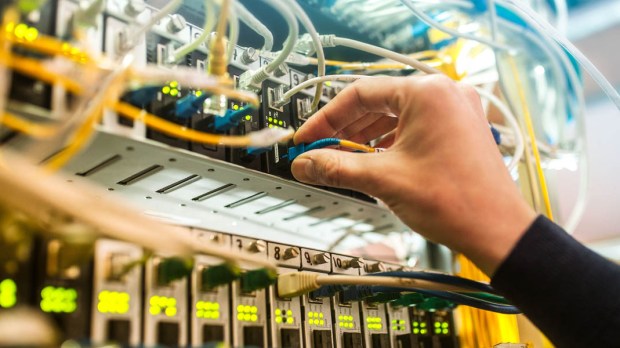The binary view in American politics can often lead us to believe there are only two possible options. Nuances and third ways are often missed, and that’s what is happening in the case of net neutrality.
As a priest who uses the internet more than most, I want to provide a very brief overview of what net neutrality is, and then put forth two nuanced ideas that need to become part of the discussion.
The basic idea of net neutrality is to treat consumer internet service as a utility: to treat your ISP (internet service provider such as Verizon or Comcast) like your phone and electricity provider. The binary options usually presented are either: (a) regulations to insure they must treat all internet data the same and have price controls, or (b) an essentially unregulated market.
Both sides in the debate seem concerned with what content companies can prioritize, but with differing emphasis. Net neutrality, as currently presented, would require all internet traffic to be treated equally. I think most of us understand the problem with Comcast prioritizing content from NBC – which it owns – while minimizing content from competitors. This would also extend to political opinions: imagine if an ISP decided articles on Catholic teaching were bad for its bottom line and started blocking sites that promoted it?
Another troubling possibility in prioritization: An ISP could charge companies for their content to be delivered faster to consumers and slow others down. Bishop Coyne, in a USCCB statement, notes how devastating such a policy could be for non-profits like the Church who don’t have as much money as big companies. Imagine Planned Parenthood’s well-funded delivery speed trying to compete with your local Birthright’s low budget.
On the other hand, different types of content may want to be treated differently, such as streaming video vs a scheduled backup. A backup can be interrupted for a few seconds, while streaming video can’t. Large tech companies who provide their own internet service will do this anyway and will not be affected because net neutrality only regulates those providing internet service to consumers.
My question – here comes the nuance – is first this: Why can’t we allow companies to prioritize certain types of data but prohibit basing that prioritization on what organization is producing it, or what opinions it may contain? This would seem in line with our traditional regards for free-speech protections, at the very least.
My second question involves pricing and is based on an idea of a “natural monopoly.” Internet delivery is one business where competition becomes difficult once one company has established itself in an area. Electric distribution and landline telephone service are classic examples of this; once one company has laid the wires, entry into the area by another company requires new wires, which tends to be prohibitively expensive.
My religious community is lucky to be among the quarter of US households with residential fiber optic connections. However, that is only one company – a natural monopoly. There are other options for internet but they’re far slower and/or far more expensive.
Natural monopolies always tend to require more regulation. For example, electricity deregulation has deregulated sourcing but not delivery. Even though my community doesn’t buy our electricity from the local company, we only have one option for delivery. If left unregulated, a local power company could price gouge, because our house doesn’t function without the electric grid.
Removing net neutrality could encourage price gouging. The first fear is that pricing becomes a kind of “a la carte” experience, where you add social media, streaming video, and other services to your basic bill. The second is that areas with little or no competition will exploit their monopoly to the economic detriment of the consumer.
Those who are against net neutrality fear a government-regulated fee where households using internet subsidize those constantly streaming videos. At least regarding electricity, that has not happened: my power bill includes a “per kWh” distribution fee, and ISPs could add a “per GB” distribution fee if they wanted to.
I think we can agree that regulation to prevent price gouging is a good thing. Likewise, I think people like price options for speed, while some might like a discount if they don’t use much data.
Beyond that, answers are not easily arrived at. I’m no scholar of the US Legal Code, and I am not even sure how much nuance is possible within the law. Nevertheless, I think we all need to pay attention to the debates surrounding net neutrality, and be aware that the usual American binary of either/or may not attend to all of concerns. In this instance, there may be a need for a (dare I say it) very Catholic sort of embrace of the both/and.

